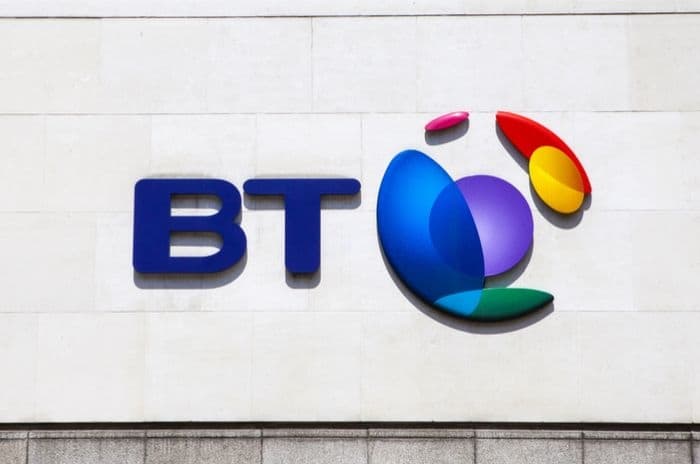Home > TV & Broadband > News > BT shares malware data with fellow ISPs to tackle cyber-crime
BT shares malware data with fellow ISPs to tackle cyber-crime
Communications provider BT has taken the unprecedented step of becoming the first internet service provider (ISP) in the world to identify and share information with other providers about malicious websites and software.

Since the initiative began at the end of last year, BT claims that it has prevented 50,000 malicious emails and 20,000 malicious attachments reaching UK email accounts every month - that's a huge 20 malicious emails every second.
The move comes as a result of increasing collaboration between BT and the Government's National Cyber Security Centre (NCSC), which works to protect the UK public from online threats in all their forms.
In a BT statement Mark Hughes, CEO of BT Security, said of the company's action: "We believe that only by working together with Government and the rest of the telecommunications industry can we collectively succeed in stemming the tide of cyber-crime".
The threat from cyber-crime
In recent years cyber-crime has become increasingly industrialised and the malware used by criminals is more complex than ever.
Common examples of cyber threats include phishing - when fake emails ask account holders for personal or security details - hacking into webcams, hijacking files and taking screenshots of computer screens, usually to steal private information or hold this information to ransom.
BT is very proactive in protecting the public from these cyber threats.
Last October, the company signed a data exchange agreement with global crime-fighting agency INTERPOL, which allows the two parties to share information with each other on the cyber threats they've discovered.
A statement from BT at the time said that the agreement aimed to "protect families, consumers, business and governments against the rising tide of cyber-crime".
Furthermore, Mark Hughes also affirmed that tackling cyber-crime "requires a collective, global response where the public and private sectors work hand-in-hand".
The message from BT is that only a collaborative approach, both globally and within the UK, will best protect consumers and businesses from the increasing threat to our cyberspace.
Indeed, the new announcement from BT is a direct result of cooperation with government body NCSC, which launched the Active Cyber Defence strategy in November 2016. This strategy aims "to protect the majority of people in the UK from the majority of the harm, caused by the majority of the attacks, for the majority of the time".
Its purpose is to tackle the frequent everyday cyber attacks that affect our everyday lives, rather than large-scale, sophisticated attacks.
Since it began, BT has supported the Active Cyber Defence strategy by actively blocking the millions of malware infections that try to cross its infrastructure every week.
The company has taken the further step of sharing its malware data with other ISPs because it believes this is the best strategy for keeping the UK public safe.
Dr Ian Levy, Technical Director of the NSCS is pleased with the step taken by BT: "This is a fantastic initiative that will help provide broader protection of cyber threats facing the UK. Networks will be able to exchange detections in real time so that UK citizens can be protected by their ISP by default and for free".
Are we any safer?
All of this sounds incredibly positive, indicating intense effort from both the private and public sectors to protect the public from cyber threats - particularly the collaborative step just taken by BT.
But is the public really any safer as a result?
As BT stated, the new initiative has stopped around 20 malicious emails every second from reaching our inboxes, and this has to be a good thing. But even though BT has taken this collaborative step, the onus is still on its fellow ISPs to act on the data that BT shares with them to protect their own customers, and they are free to ignore BT's data if they choose.
It would also be helpful if other ISPs follow BT's lead and respond by sharing their own malware data across the industry - but only time will tell if others decide to do the same.
Finally, although the public and private sectors are working hard to protect us from threats, we should remember that we also have a responsibility to help protect ourselves from cyber threats.
It's important to follow basic precautions when going online, as outlined here by the National Crime Agency.
.Get insider tips and the latest offers in our newsletter

We are independent of all of the products and services we compare.

We order our comparison tables by price or feature and never by referral revenue.

We donate at least 5% of our profits to charity, and we aim to be climate positive.
Latest News

23 December 2025
UK fixed broadband performance: latest Opensignal report
17 December 2025
UK leaseholders could get right to demand gigabit broadbandGet insider tips and the latest offers in our newsletter



